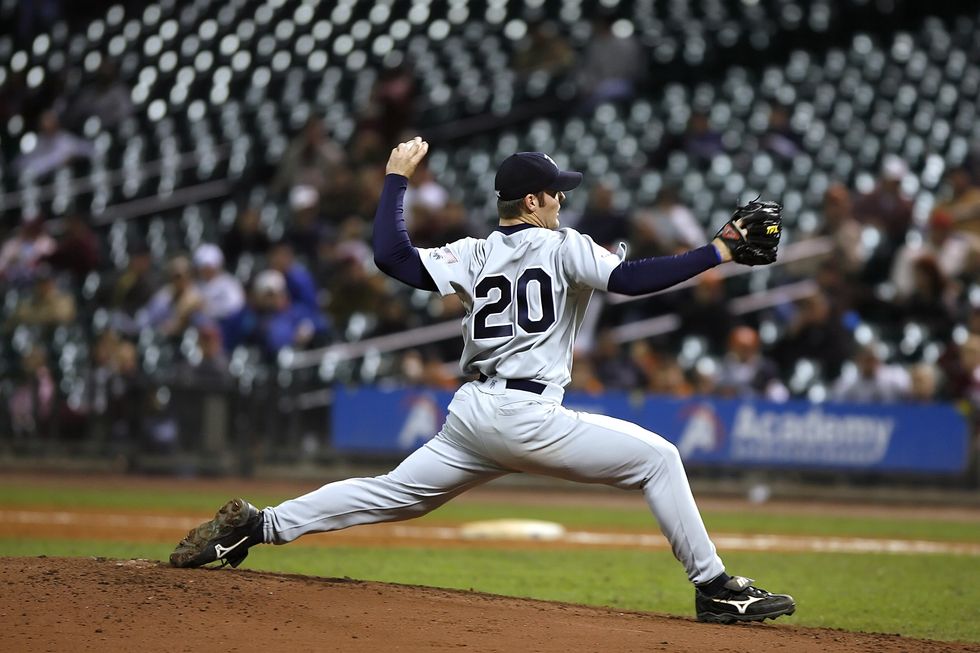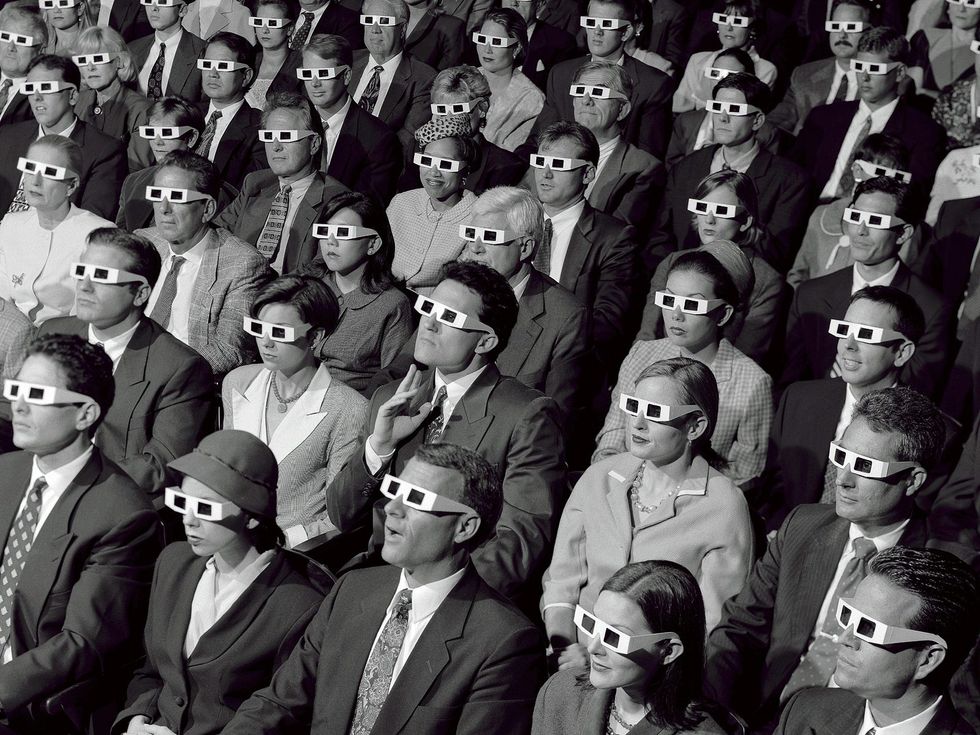As I sat down to dinner the other day with a friend of mine, I had a straightforward, but maybe not so simple question for her.
Fully knowing that she’s been doing extensive research on collegiate sports programs for the last several months, I asked for her opinion: “What do you think of Native American imagery in sports?”
“I think it’s in bad taste,” was her swift and immediate reply. “Mascots aren’t meant to honor or promote. And often mascoting can occur to individual players themselves. Phrases like ‘wow, you’re a beast’ aren’t necessarily promotive, but discouraging.”
Point taken.
The context of the question was asked in light of the Cleveland Indians organization’s decision to retire the Chief Wahoo logo beginning with the 2019 MLB season.
Chief Wahoo, a grinning, cartoonish, red-faced Native American has long been the subject of controversy in the Cleveland area and beyond, with many claiming the logo is racist and discriminatory.
And while I’m not necessarily opposed to the retirement of Chief Wahoo, I’m not sure I can necessarily concur with my friend.
“What if I told you that the Washington Post had done a poll in regard to the Washington Redskins name,” I continued over dinner. “90 percent of Native Americans polled said that they were not bothered by the name or the logo, compared to only nine percent that were.”
“It’s still in bad taste,” responded my friend. “It’s just in bad taste.”
Now, the validity of whether or not white individuals should be deciding for Native American populations what is “in bad taste” is something that can be debated heavily, but in my own mind, it seems foolhardy. I’m not a Native American, so who am I to tell them what is and isn’t offensive?
To be fair, there have been criticisms of the Washington Post poll, a favorite of conservative commentators in recent years, such as that it is not geographically diverse enough, or that it asked the Native Americans it sampled to self-identify.
The rebuttal to this, however, is that what race isn’t asked to self-identify? That is how the census (and most every survey) operates. Race, as a socially constructed structure, is something that every individual has to zero in on for him and herself. One critic, in particular, was bothered by the fact that a portion of the Native Americans polled was not officially affiliated with a tribe or knew their tribal ancestry.
But what white person knows every inch of their ancestry? What about black Americans or Asian Americans? Granted, there are various historical and political contexts that might affect that knowledge for each racial group, but imagine the same standard being applied to non-American Indian races. You’re not really white if you don’t know continental Europe. You’re not really black if you don’t know sub-Saharan Africa. You’re not really a Native American if you don’t know the tribe.
My concern is in attempting to craft such a moralistic argument as “it’s in bad taste” without fully appreciating the nuance of Native American mascots. That means acknowledging parts good and bad.
The bad of course being that racism was often the motivator of the creation of many Native American mascots, including Chief Wahoo. Like many sports teams, the baseball organization in Cleveland has undertaken many names over the years, including but not limited to Naps, Lake Shores, and Broncos.
In 1915 the owner at the time, Charles Somers, asked area papers to come up with a new name for the team, and eventually settled on “Indians” based on a nickname for Cleveland’s previous baseball club which had folded after the 1899 season and had been called such because of the presence of Louis Sockalexis, one of the first Native Americans to play baseball professionally.
Sockalexis faced discrimination and many unfortunate slurs hurled at him on the baseball diamond while he played with Cleveland from 1897 to 1899. Alcoholism, which he developed later in life, was often attributed to him as “the Indian weakness” by commentators.
The question then is what was the Indians name, and later the Chief Wahoo logo, adopted to honor Sockalexis, or to mock him? Given the political climate of 1915 and that the language used in the papers that announced the new “Indians” name have retrospectively cited as “very racist”, I think it’s safe to say that the new nickname did not honor Sockalexis.
But could it?
Chief Wahoo is a very caricatured idea of what a Native American should look like, and in that sense no longer belongs in the major leagues. But what about others? After all, there are at least six major sports teams in North America that bear a Native American nickname: the Cleveland Indians, Washington Redskins, Atlanta Braves, Chicago Blackhawks, Kansas City Chiefs, and Edmonton Eskimos.
While the Washington club has been met with an extensive protest over their name, what of the Eskimos (a word which is also often seen as offensive)? While some Canadians have objected, I don’t see the same kind of widespread teeth-gnashing that has happened in the United States. And what of a team like the Kansas City Chiefs that use some Native American imagery (i.e. Arrowhead Stadium) yet whose actual name far predates any European discovery of Native Americans? What of the Vancouver Canucks, who use a Haida-style orca in their team logo? Certainly less caricatured, but does it show a respect or a chance to capitalize on regional dollars?
And while there can be no equation between the plight of American Indians and other ethnic groups, North American sports are surely not bereft of ethnic imagery beyond that already mentioned above. How about the stylized Minnesota Vikings logo? The Boston Celtics, who have a stereotypical leprechaun, short, wizened, and decked in four-leaf clovers, as their mascot?
What of atheists or agnostics who are met time and again with religious imagery in their hometown teams, like the New Orleans Saints or Los Angeles Angels? Or how about every sports team that has nicknamed itself after romanticized cowboys of the American West (Dallas Cowboys, Saskatchewan Roughriders, etc.) despite the fact that one in every four cowboys were African-American?
How many of these are “in bad taste”?
Now, don’t misunderstand. I do think we should be sensitive to the concerns of our fellow men and women. But I struggle to find where we draw the line between offensive, historical, and benign. I believe the right decision occurred in the case of Chief Wahoo, but should the entire Indians name be scrapped now too? I don’t know if you can say so definitively when any number of the Americas’ indigenous people would prefer and regularly go by the term “Indian” or “American Indian”.
And while total reduction of an ethnic group to either caricatured versions of themselves or one-dimensional “strong” or “savage” types is certainly no good, is there no balance that can be struck? No positive way to display a Native American image within sports without reverting to reductionism? To say so would be to simplify the idea of race and ethnicity to a static core, which would be foolish at worst and ignorant of our shared human history at best.
Where further efforts to reduce Native American mascots persist I think it is valuable to pause a moment. Race is a passionate issue, no one is denying. Often we catch ourselves up in that passion to the extent that it becomes difficult to have a dialogue. And if there is ever to be a resolution on any of this, whether you are black, white, or an American Indian, a dialogue is what is sorely needed.



 all stars lol GIF by Lifetime
all stars lol GIF by Lifetime two women talking while looking at laptop computerPhoto by
two women talking while looking at laptop computerPhoto by  shallow focus photography of two boys doing wacky facesPhoto by
shallow focus photography of two boys doing wacky facesPhoto by  happy birthday balloons with happy birthday textPhoto by
happy birthday balloons with happy birthday textPhoto by  itty-bitty living space." | The Genie shows Aladdin how… | Flickr
itty-bitty living space." | The Genie shows Aladdin how… | Flickr shallow focus photography of dog and catPhoto by
shallow focus photography of dog and catPhoto by  yellow Volkswagen van on roadPhoto by
yellow Volkswagen van on roadPhoto by  orange i have a crush on you neon light signagePhoto by
orange i have a crush on you neon light signagePhoto by  5 Tattoos Artist That Will Make You Want A Tattoo
5 Tattoos Artist That Will Make You Want A Tattoo woman biting pencil while sitting on chair in front of computer during daytimePhoto by
woman biting pencil while sitting on chair in front of computer during daytimePhoto by  a scrabbled wooden block spelling the word prizePhoto by
a scrabbled wooden block spelling the word prizePhoto by 
 StableDiffusion
StableDiffusion
 StableDiffusion
StableDiffusion
 StableDiffusion
StableDiffusion

 women sitting on rock near body of waterPhoto by
women sitting on rock near body of waterPhoto by 
 Photo by
Photo by  Photo by
Photo by  Photo by
Photo by  Photo by
Photo by  Photo by
Photo by  Photo by
Photo by  Photo by
Photo by  Photo by
Photo by  Photo by
Photo by  Photo by
Photo by 









